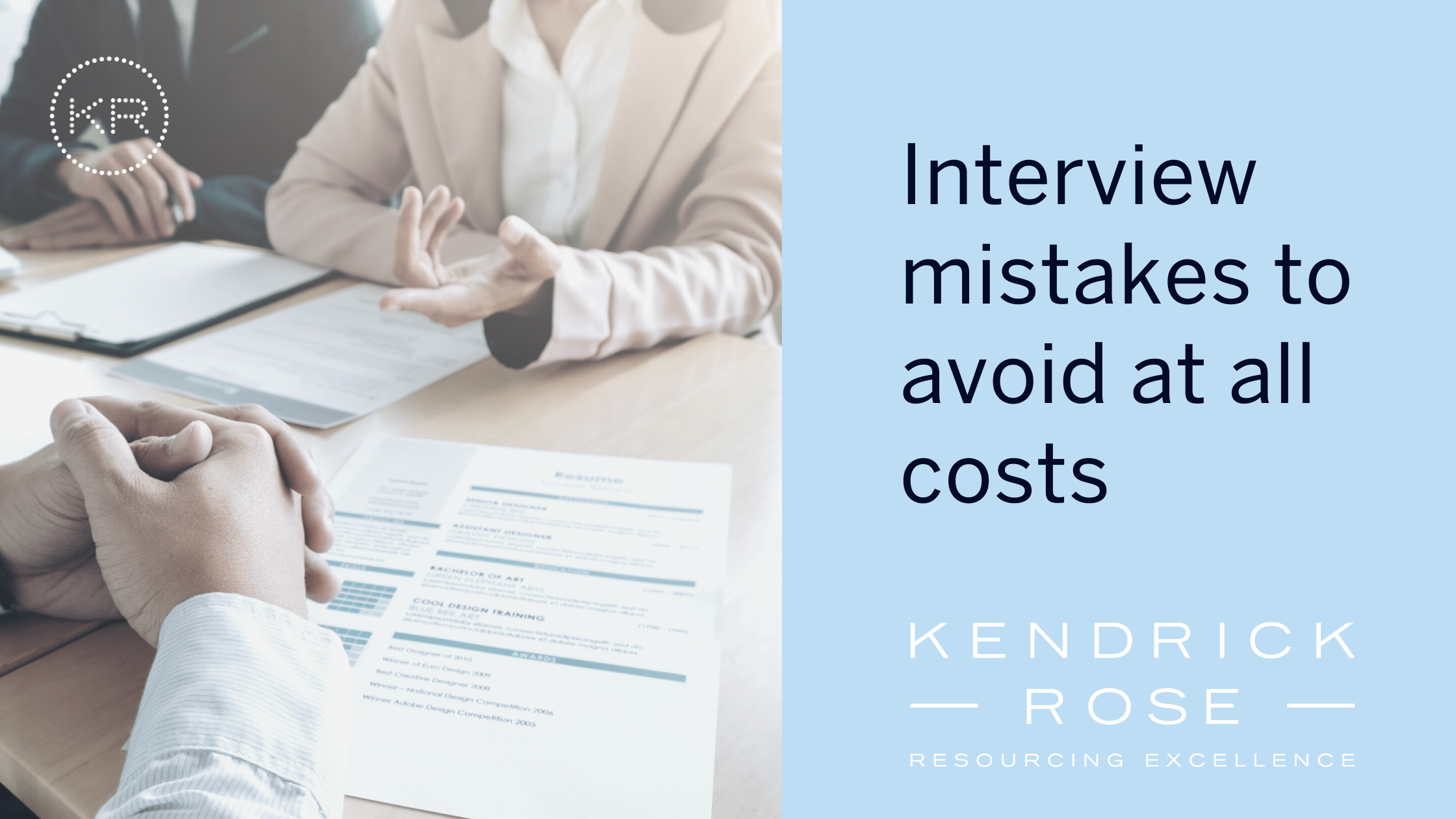Interview mistakes to avoid at all costs
Posted on 04/10/21
Turning Up Late
First impressions count, and tardiness does not make a great first impression at an interview. Unless you have an extremely good excuse - and call ahead to warn them or rearrange - make sure you allow yourself plenty of time to arrive on time.
Dressing Inappropriately
Speaking of first impressions, what you wear does matter. While smart casual might be the current trend, professional attire is still proper business etiquette for interviews. When in doubt, it’s always better to be overdressed than underdressed.
Not Doing Your Research
Even if you have the right skills for a job, a lack of any research into the company can be a big no-no at an interview. Take the initiative to check out the ‘About Us’ page on their website, read their mission statement and have a look at who their major competitors are. Know why you want to work for this company specifically, not just why you’re right for the role.
Poor Body Language
Your body language is as telling as the skills on your CV. Eye contact, good posture, a cheerful demeanor and a firm handshake will get you a long way in an interview. You also want to avoid fidgeting, which can show signs of discomfort or, worse, boredom.
Unclear Answering and Rambling
It is better to take a moment to think through your answers, than to launch into a rambling response, which may lead to an uncomfortable halt. Take your time and speak clearly to avoid the need to ask you to repeat yourself or causing the interviewer to strain to understand you.
Speaking Negatively About Your Current Employer
No matter how dire your current or previous work situation may be that has led you to seeking this new position, it is best never to complain about your current employer. Bad mouthing won’t reflect well on you and, rightly or wrongly, may bring into question your ability to work well with others.
Not Asking Questions
Asking intelligent questions is a great tool to show your interest in the company and the role, so have a couple of relevant questions prepared to pull out when appropriate.
Lying on Your Résumé
Anything on your résumé could be brought up for discussion at an interview, so having any lies on there - no matter how small - could catch you out, potentially damaging your reputation in the long run.
Getting Too Personal
While you want to be honest at an interview, you also don’t need to give your entire life’s story. Avoid personal sob stories about how much you need the job due to the mountain of debt you’ve accrued or anything else that could potentially make your interviewer feel uncomfortable. While you want to appear friendly, you need to remain professional, so avoid acting overly familiar.
Forgetting Your Manners
Basic manners are always appreciated, and can tell the interviewer a lot about your character. Wait until you’re shown a seat to sit down, remember your Ps and Qs, and avoid cursing at any time. and avoid slouching or putting your feet anywhere but firmly on the ground.
Discussing Money or Time Off
Unless an offer is directly put on the table at the time, it’s generally not recommended to discuss money or future working arrangements at the interview.
Not Following Up
No matter how you think you performed, a simple email reiterating your interest is a courtesy that reflects well on you and could pay off in the long run.
